The APOGCE Programme Committee invites you to submit a paper proposal for potential inclusion in the technical programme.
SUBMIT YOUR PROPOSAL
EXTENDED SUBMISSION DEADLINE: MONDAY, 9 FEBRUARY 2026



The paper proposal categories below are used to direct paper proposals to the appropriate subject matter experts for evaluation. Please indicate the category designation on the online form where indicated.
Oil & Gas Business Strategy and Economic
• Business Strategy/Management
• Economic Evaluation and Decision Making
• Government
• Holistic Level Economics
• Industry Strategies
• Market Analysis
• Planning
• Policy and Compliance
• Political Uncertainty, Geopolitics
• Quantified Policies
• Scenarios/Risk Analysis and Management
• Trading and Supply
• Uncertainties and External Influences
• Business, Finance and Social Economic
• Carbon Offset Sourcing and Quality
• Carbon Pricing
• Carbon to Products
• Changing Regulatory Environment
• Energy Efficiency
• Energy Infrastructure
• Green Energy Policies and Programmes
• Greenhouse Gas and Climate Change Policies
• Low Carbon Economy Strategies and Governance
• Policies and Strategies
• Sustainability: Environmental Issues and Solutions
• Sustainable Energy Management and Policies
• The Circular Carbon Economy Framework
• The Economics of CCUS
Knowledge Retention and Human Capital
• Collaborative Environment
• Competency Measurement and Development
• Corporate Knowledge Retention and Monetisation
• Diversity, Equity and Inclusion
• Experience Gap
• Human Resource Market Intelligence
• Knowledge Sharing
• Leadership and Management
• Mentoring and Coaching
• Outsourcing
• Recruitment
• Remuneration
• Succession Planning
• Training and Development
• Workplace/Environment
• Young Professionals (YP’s)
• Community Development
• Community Engagement
• COVID Management
• Emergency Response
• Environmental Planning
• Environmental Protection and Rehabilitation
• Environmental, Social and Governance (ESG)
• Mental Health Support
• Native/Land Title
• Land Access
• Process Safety
• Regulatory Aspects Risk Management
• Safety Cases
• Security Management
• AI Governance Artificial Intelligence/Machine Learning/Deep Learning
• Artificial Intelligence/Machine Learning/Deep Learning
• Blockchain Applications in Oil and Gas
• Data Analytics and Information Management
• Data Mining and Analysis
• Digital Twin Data Management
• Digitalisation Initiative
• Edge Computing
• Hybrid and Remote Working
• Industrial Cybersecurity
• IOT
• Mobility and Digital Oilfield
• Real Time Data Analytics
Subsurface Characterisation, Modelling and Simulation
• By Passed Pay Identification
• Chemical Tracers
• Core Analysis (RCA & SCA)
• Dynamic Modelling
• Fluid Dynamics
• Fluid Properties and Sampling
• Formation Damage
• Geochemistry
• Geomechanics
• Petrophysics and Formation Evaluation
• Phase Behaviour
• Pore Pressure Prediction
• Relative Permeability
• Residual Oil and Gas Saturations
• Sedimentology and Depositional Modelling
• Seismic Acquisition and Processing
• Static Modelling
• Well Monitoring
• Associated Gas Management and Disposal
• Brownfield Rejuvenation and Redevelopment
• Contaminants
• Deepwater Developments
• Dynamic Appraisal
• Economic Evaluation and Decision Making
• Front End Evaluation
• High Pressure High Temperature (HPHT)
• Integrated Reservoir / Asset Development
• Marginal Field Development
• Multidisciplinary Field Development
• Parallel Appraisal/Development
• Phased Developments
• Project Governance
• Project Management (Greenfield and Brownfield)
• Reducing Development Cycle Time
• Regulatory and Approval
• Reserves Estimation and Production Forecasting
• Unconventional Field Development
• Value of Information
Drilling and Completions
• Batch Drilling
• Blowout Modelling and Remediation
• Cementing
• Coiled Tubing Drilling
• Cost Estimation and Escalation
• Directional Drilling and Geosteering
• Drill Cuttings Reinjection
• Drilling Automation and Smart Drilling Systems
• Drilling Fluids
• Deepwater Wells
• Horizontal Wells
• HP/HT Wells
• Multilateral Technology
• Drilling and Completion Operations
• Safe Work Practice in Drilling
• UBD/MPD
• Well Control
• Well Design
• Well Integrity
• Wellbore Stability/Wellbore Strengthening
Well Systems and Production Technology
• Artificial Lift
• Coiled Tubing Operations
• Complex Completions
• Corrosion and Oilfield Chemistry
• Fibre Optic Technologies
• Field Operations and Well Operations
• Flow Assurance
• Gas Injection
• Hydraulic Fracturing
• Hydraulic Modelling/Simulation
• Inflow Control Devices/Valves
• Multilateral Technology
• Open Hole Completions
• Production Chemicals
• Sand Control and Gravel Packing
• Smart Wells/Intelligent Completion
• Thru-Tubing Intervention
• Tubulars
• Water Injection, Water Disposal
• Well Integrity
• Well Monitoring
• Well Stimulation
• Workovers and Interventions
Unconventional Resources
• Coal Seam Gas/Coal Bed Methane
• Flowback and Post Flow Modelling in Tight Reservoir
• Formation Testing
• Fractured Basement
• Gas Hydrates
• Hydraulic Fracturing
• Naturally Occurring Hydrogen
• Production Data Analysis in Unconventional Reservoirs (PDA)
• Shale Gas/Oil
• Tight Gas/Oil
• Underground Coal Gasification
Facilities and Operations
• Automated Field Optimisation
• Contaminants and Inerts
• Corrosion and Erosion
• Cryogenic Applications
• De-Bottlenecking Facilities
• Deliverability and Swing Management
• Emulsion and Solids Management
• Facilities Concepts
• Facility Pipelines
• Fuel Efficiency
• Gas Storage and Transport
• Gas to Liquid Technology
• Hazardous Materials and Waste Management
• Hostile and Remote Environments
• Hydrate Control
• Inspection, Maintenance & Repair
• Liquid Storage and Disposal
• Membrane Separation
• Multiphase Pumping
• Not-Normally-Manned/Unmanned
• Offshore Structures & Equipment
• Onshore Pipeline Transportation
• Onshore Process and Plant Equipment
• Process and Flow Modelling
• Production Optimisation and Management
• Reliability and Integrity
• Syngas Production
• Transportation Technology
• Utilities Equipment
• Water Management/Produced Water Treatment
• CCS/CCUS and EOR/EGR
• CCS/CCUS and Wells
• Changing Regulatory Environment
• CO2 Capture and Transportation
• CO2 Utilisation
• Commercial Arrangements/Project Financing
• Design for CO2 Injection
• Geological CO2 Storage
• Injection Strategies
• Integrated CCS MMV (Measurement, Monitoring and Verification) Strategies
• Leakages and Integrity
• Legacy Wells
• Policy and Regulations
• R&D & Innovative Technologies
• Safety, Security, Health and Environment
• Storage Resource Management
• Carbon Footprint Reduction in Supply Chain
• Decarbonisation Challenges
• Decarbonising Existing Assets/Operations
• Direct Air Capture
• Electrification
• Emissions Management and Mitigation
• Facility Design and Future Proofing
• Marginal Abatement Cost Curve Assessments
• Renewable Energy Integration
• Barrier Plug Materials
• Cost Estimation
• Decommissioning Technologies
• End of Field Life Management
• Environmental Impact Management
• Facilities Decommissioning
• Hazardous Materials Management
• Liability
• Monetising Decommissioning
• Policy and Regulation
• Remedial Activities
• Subsea Field Abandonment
• Waste Management and Recycling
• Well Abandonment
Why Submit Your Abstract?
Conference Dual Submission Policy
Authors will be allowed to submit abstracts to only one conference at a time. An abstract must be declined by a programme committee prior to being submitted to another conference for consideration. In the event it is detected that an abstract has been submitted to more than one conference, all versions/copies of that abstract will be removed from consideration.
Any paper previously presented at a conference and published in OnePetro may not be re-submitted for publication at another SPE conference. The author may present the subject matter at subsequent conferences at the invitation of the programme committee, but the paper will not be included in the conference proceedings.
Submission Information
A proper review of your paper proposal requires that it contains adequate information on which to make a judgment. Download our instructions guide to assist you with the preparation of your paper proposal.
The paper proposal should have the necessary clearance before it is submitted to APOGCE 2026. Prospective authors should advise of any clearance problems when the paper proposal is submitted. Learn more about proposals and papers.
SPE must comply with all applicable sanction laws, including those of the United States and the United Kingdom . This includes screening individuals and entities against applicable lists of restricted parties to determine whether SPE is prohibited from, among other things, providing services to or receiving services from such parties.
Please note that abstract submissions should be formatted into four (4) specific paragraphs:
The following guidelines apply:
The ORCID iD (Open Researcher and Contributor ID) is one of scholarly publishing’s most accepted and widely used unique author identifiers. It is used across numerous publishers.
An ORCID iD is a simple numerical identifier (e.g. 0000-0001-6479-5330). Each researcher/author should have only one ORCID iD, which will stay the same over their lifetime.
Anyone can register an ORCID iD for themselves for free using a simple online registration form on the orcid.org website. The initial process takes less than 2 minutes. Once created SPE members can also add their ORCID iD to their SPE member profile.
It is the responsibility of the author to obtain company clearance, to ensure the company understands that if the proposal is accepted, you will be required to travel to the event to present. All travel expenses (airfare, hotel, registration) associated with attending the conference are the responsibility of the company or individual attending.
Should you have further questions regarding the Call for Papers process, please contact SPE Asia Pacific office at klprog@spe.org or +60.3.2182.3000